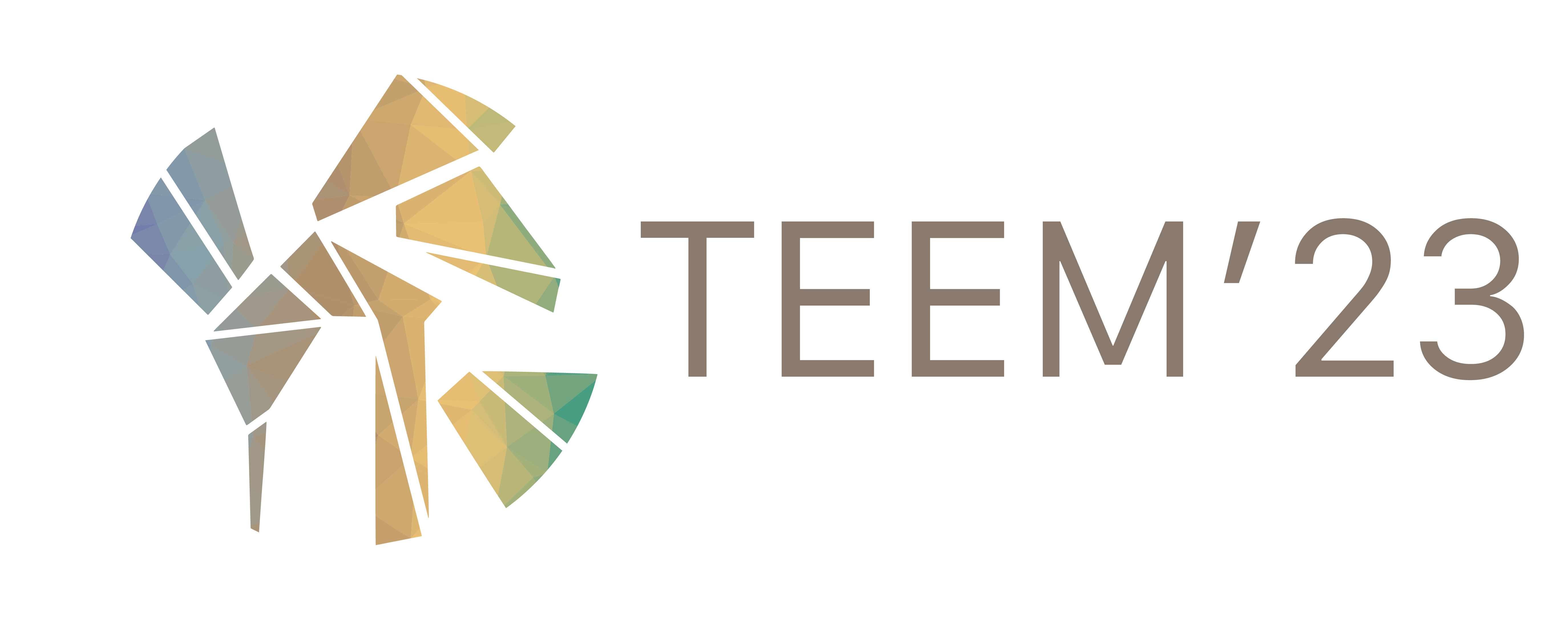The TEEM’23 organization wants to congratulate the authors of the following list of papers who win the “Best Paper Award” on each Track.
Track 1 – Gamification and Games for Learning (GAMILEARN)
The dynamics of students’ playing profiles in a programming educational escape room. Sonsoles López-Pernas, Aldo Gordillo, Enrique Barra and Mohammed Saqr.
Track 2 – Managing Generative AI in Educational Settings
Leveraging on Generative AI to Teach Undergraduate Software Engineering: A Collaborative Prompt Catalogue. Juan Antonio Pereira, Juan Miguel López, Maider Azanza, Óscar Díaz and Xabier Garmendia
Track 3 – Multidisciplinary technological resources applied to health sciences
Design and prototyping of personalised in-ear headphones with advanced digital methodologies. Fernando Blaya Haro, Juan Ortega Corredor, Roberto D’Amato and Juan Antonio Juanes Méndez.
Track 4 – Engineering Education: Approaches to technology education and multiculturality
Engineers, STEM education and multiculturality: an online, open access approach. Ana Pavani, Fatima Alaoui, Natalia Muñoz-Rujas and Eduardo Montero.
Track 5 – New Trends in Mechatronics Engineering Education
PlantSTEM: plant science based robotics for STEM engagement. Nelson Enrique Hernández Gallego, Ramon Vilanova, Montserrat Meneses and Carles Pedret.
Track 6 – Bridging the diversity gap in STEM
Development of inclusive tools through digital fabrication for chemistry learning in students with and without visual impairment. Cesar Horna-Saldaña, Xavi Canaleta, David Fonseca, Daniel Amo-Filva and Selene Caro-Via.
Track 7 – Laboratories in STEM Education
From Users to Technological Mediators: Experiences of pre-service teachers incorporating VR and AR technologies in their initial teaching strategies. Cristian Prado-Medel.
Track 8 – Data-Driven Education: Overcoming Hurdles for the Future of Learning Analytics
How a learning analytics dashboard intervention influences the dynamics of students’ learning behavior. Gökhan Akçapınar, Sonsoles López-Pernas, Erkan Er and Mohamed Saqr.
Track 9 – Smart Learning
Bridging the Gap: An Extended Challenge-Based Learning Framework for University-Industry Collaboration. Debora Cardador, Bruno Teixeira, Marcelo Pereira, Luciano Rodrigues, Carlos Gama, Rosa Ladeira, Gustavo Robichez and Rafael Nasser
Track 11 – Communication, Education and Social Media
Are journalists no longer needed? Comparative analysis of the perceived quality of real news and ChatGPT news. João Pedro Baptista and Anabela Gradim
Track 12 – Identity and education. Identity construction processes in hyperconnected and natural ecosystems
Cultural identity through 3D modeling: Learning national architecture heritage based on Hologram technology. Svetlana Karkina, Karina Klyuchnikova, Juanjo Mena and Liliya Mukhametzyanova.
Track 13 – Educational assessment and guidance
Flipped classroom model effectiveness in academic performance of university students. Mónica Delgado Fabián, Laura María Yeomans Galli, Magda Alicia Leal Garza, Irma Jarquín Arellanes and H. Lizette Menchaca Torre.
Track 14 – Educational Innovation
Mentoring Program and Students Well-being. Elvira G. Rincon-Flores, Nohemí Rivera-Vázquez and Carlos F. Rodríguez-Hernández.
Track 16 – Doctoral Consortium
Development of vocations in engineering in secondary schools in Portugal. Paulo Silva, Alicia García-Holgado and Manuel Felgueiras.
